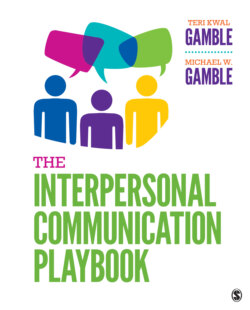Читать книгу The Interpersonal Communication Playbook - Teri Kwal Gamble - Страница 93
На сайте Литреса книга снята с продажи.
The Self in High- and Low-Power-Distance Cultures
ОглавлениеAttitudes toward the self also differ along the dimension of power distance, or the extent to which individuals are willing to accept power differentials. People from high-power-distance cultures, such as Saudi Arabia and India, perceive power as a fact of life. In these cultures, people in low-power positions are apt to defer automatically to people in authority. In contrast, people from low-power-distance cultures, such as the United States and Sweden, are more likely to emphasize and value their independence even when superiors are present.39 A general feeling of equality prevails in such cultures (see Table 2.4).
Try This: Are You an “I” or Part of a “We”?
Evaluate how much the statements in categories A and B below reflect how you think and act in regard to yourself and others. Rate each statement on a scale of 1 to 5, with 1 being not at all important and 5 being very important.
Category A
1 I want to demonstrate my personal worth. _____
2 I want to be me. _____
3 I want others to consider me an asset. _____
4 I want to achieve my personal goals. _____
Total _____
Category B
1 If I hurt you, I hurt myself. _____
2 I want harmonious relationships. _____
3 I put the welfare of others before my own welfare. _____
4 I act in accordance with tradition. _____
Total _____
Compare your totals. The higher your Category A total, the greater your idiocentric tendencies. The higher your Category B total, the greater your allocentric tendencies.
Table 2.4
